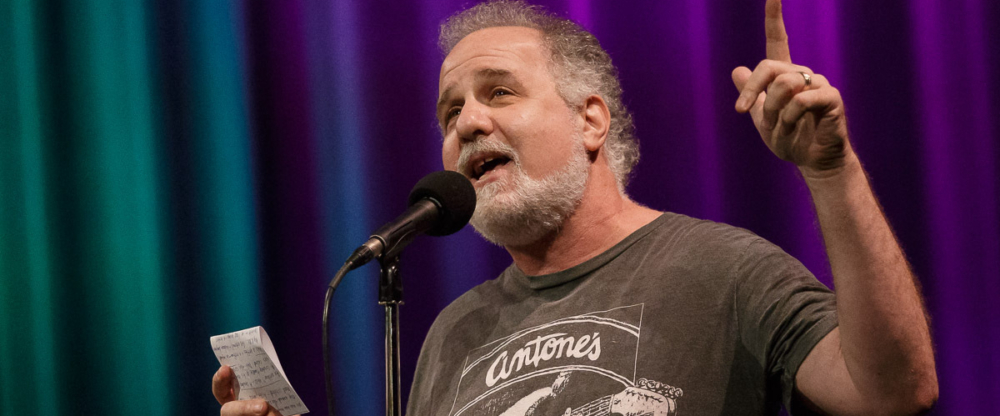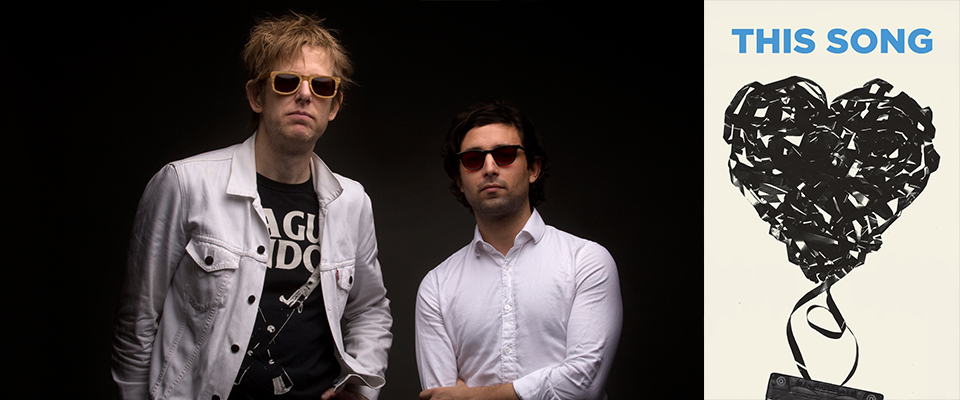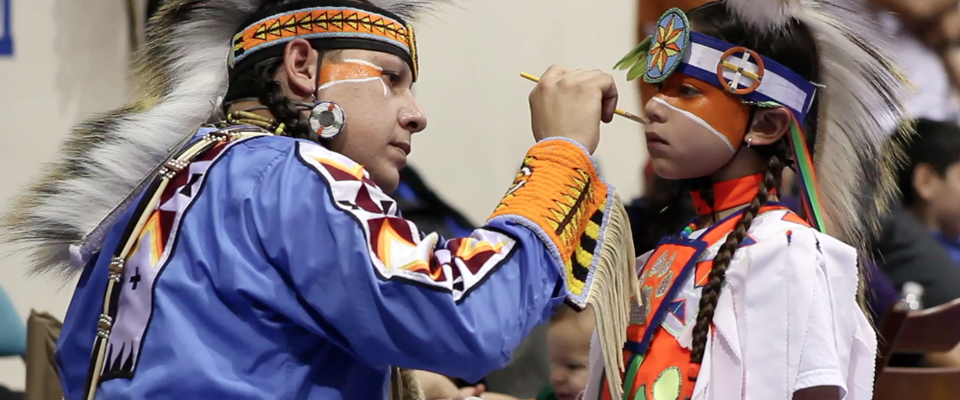The Austin Radio Legend’s Final Program Was Friday, August 2nd
Listen back to Jody’s KUTX retirement signoff directly below. Scroll past the full piece by KUTX Music Editor Jeff McCord to find the playlist at the bottom of this page.
When Jody Denberg came to work for KUT part-time in 2010, he was a bonafide radio legend. All of us in this city had listened to him for decades, first on KLBJ, then on KGSR, and I remember how lucky we all felt when he joined our staff.
Friday August 2nd is Jody Denberg’s 65th birthday, but the celebration may be a little more muted than usual, because, as hard as it is to believe, that day also marks his final day on the Austin airwaves. Jody is retiring. After so many years of full-time radio work, he’s ready to rest up, escape the summer heat, and enjoy his free time. Yet there are certain constants in Austin, and he leaves behind a real void in the Austin airwaves.
It was only a couple of years after arriving in Austin in 1980 that I first met Jody. He had a Sunday program on KLBJ called ‘Critic’s Choice’, the only free-form radio outpost left on what had previously been one of the nation’s most adventurous radio stations.
At the time, I was working at the newly-opened Waterloo Records, and in the store, Jody and I bonded immediately over our shared music obsession. When Waterloo put on shows, I would bring artists like John Doe and Exene over to his radio show for interviews.
Because of his professionalism, I assumed Jody had a long background in Austin radio. In fact, KLBJ was his first radio gig. And he had rolled into Austin just a few years before me. As for his Texas heritage?
“I grew up in the North Bronx,” Jody explains, “a nice Jewish and Italian neighborhood. But to go to Manhattan, you had to take the number two train downtown through the South Bronx, right? That was immortalized in the film Fort Apache, supposedly the worst neighborhood in the world.”
Yet Jody learned adaptability that would serve him throughout his life. He stayed out of trouble, made good grades, and was granted a lot of freedom, which by his teenage years, he was putting to good use.
“I started going to concerts when I was 12, in 1971. My first concert was the Jeff Beck Group, not the one with Rod Stewart and Ron Wood, but the one that came after with Max Middleton on keyboards. Being in New York City, I had access to all these shows. My mom would let me go if I had an older person, like a friend’s older sibling accompanying [me]. So I went to all these shows at Madison Square Garden. By the time I was 15, I had all these major shows under my belt, like The Who. I saw John Lennon’s last performance when he got up with Elton John, Thanksgiving 1974. I was always a music person. I know it’s a cliche, but for me it was kickstarted by the Beatles on Ed Sullivan in 1964. I went and got a 45 when I was five years old.”
Still, things were far from idyllic on the home front.
“My birth father died when I was three,” Jody explains, “and my mom was pregnant with my sister. She remarried an Italian man named Vito Colello. She was married to him for ten years. He was an addicted gambler. It was a hard life, because whenever you have a person with an addiction in your home, you know…”
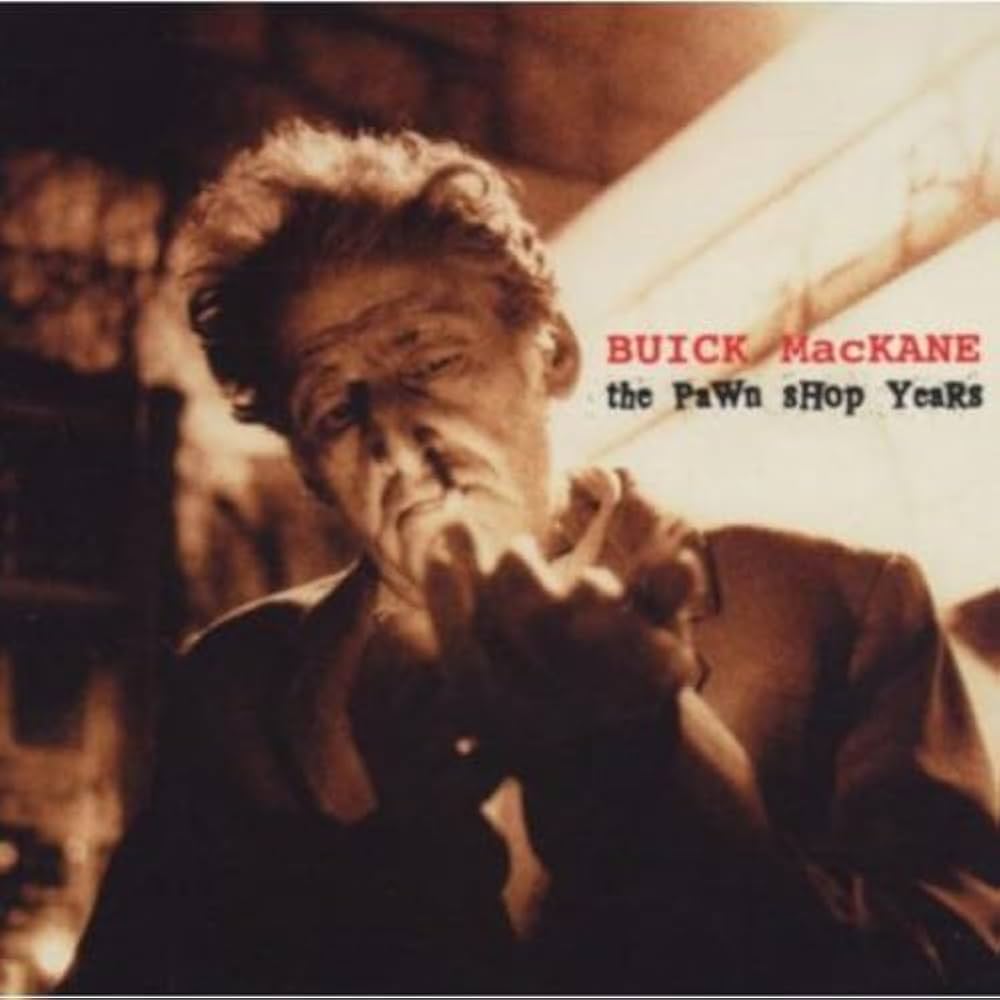
Vito would later play an inadvertent role in the Austin music scene, when Jody’s friend Alejandro Escovedo asked to use a photo Jody had of Vito for a Buick MacKane album cover.
“Well,” Jody says, “that’s my stepdad. He’s a gambler.”
“The album’s called ‘The Pawn Shop Years’,” Alejandro replies.
“Perfect,” says Jody.
“My mom and stepdad, they kept separating, breaking up, getting back together, separating. And my mom had just had it; she had to get out of New York. She only had one sibling because I didn’t have family on my biological father’s side. My mom’s brother, who was a New Yorker, had just taken a civil service test, and he got stationed as a border patrolman in El Paso. Essentially, we ran away from home.”
For a teenager used to the hardscrabble hustle of New York City, El Paso came as a culture shock.
“I had a pack of Marlboro Reds rolled up in my sleeve like I was cool. You could smoke on airplanes then. We were landing and we were smoking, and all we saw was this red dirt. I was like, “Where’s the fucking buildings?”
Yet his adaptability paid off again. Jody settled in, fell in with a new group of friends, finished high school, enrolled at UTEP. West Texas was starting to feel like home.
And then, in 1977, he visited Austin.
“I came to Austin with some friends of mine who were already in the Jester Center at UT. I liked progressive rock. Genesis was playing at the Municipal Auditorium. And the night before, at the Armadillo World Headquarters, there was this prog rock band called Nektar. It was amazing. You could just go into a club and walk up to the front, not like in Madison Square Garden. And so when I finished my year at UTEP, I came here in the summer of ‘77.”
“I [was working on] a journalism degree and I wanted to write music reviews. I checked into The Daily Texan at the end of 1978. And I met people there; Louis Black, Nick Barbaro, Jay Trachtenberg, Jeff Whittington, and through them I met Margaret Moser. And when we all graduated in ‘81, there was nowhere for us to write. Nick Barbaro had just inherited some money, so he started the Austin Chronicle.”
Jody would have likely continued as a music writer. In the eighties he contributed to the Chronicle, Third Coast Magazine, Texas Monthly, and Record Magazine, a Rolling Stone spinoff. But a part time job he picked up was taking up more and more of his time.
In 1980, KLBJ, one of the country’s great commercial freeform stations, had changed overnight to a rigid album rock format – Stones, Journey, Zeppelin.
“The press was so harsh to them,” Jody recalls. “Pre-digital, pre-internet era, and Ed Ward, the music columnist for The Statesman, was going after them, and in the Texan, so was I. I was taking them to task for moving so far to the right musically, and they said, ‘Well, if you know so much, come up here and do your own show’. They called it ‘Critics Choice’. It was on Sunday mornings. I did one, Ed Ward did one, Margaret Moser did one, Jeff Whittington did one, some other people, a week at a time. And then KLBJ called me back and said, ‘We thought you did a really good job. Do you want to do this show on a regular basis?”
“And I quickly sold out. All my ‘you guys are too conservative’ stuff went out the window and it’s like, ‘Yeah!’ I’ll play Journey and work in the middle of the night. Because back then there wasn’t any voice tracking and they had deejays overnight. So that was my first radio job.”
“And I quickly sold out. All my ‘you guys are too conservative’ stuff went out the window and it’s like, ‘Yeah!’ I’ll play Journey and work in the middle of the night. Because back then there wasn’t any voice tracking and they had deejays overnight. So that was my first radio job.”
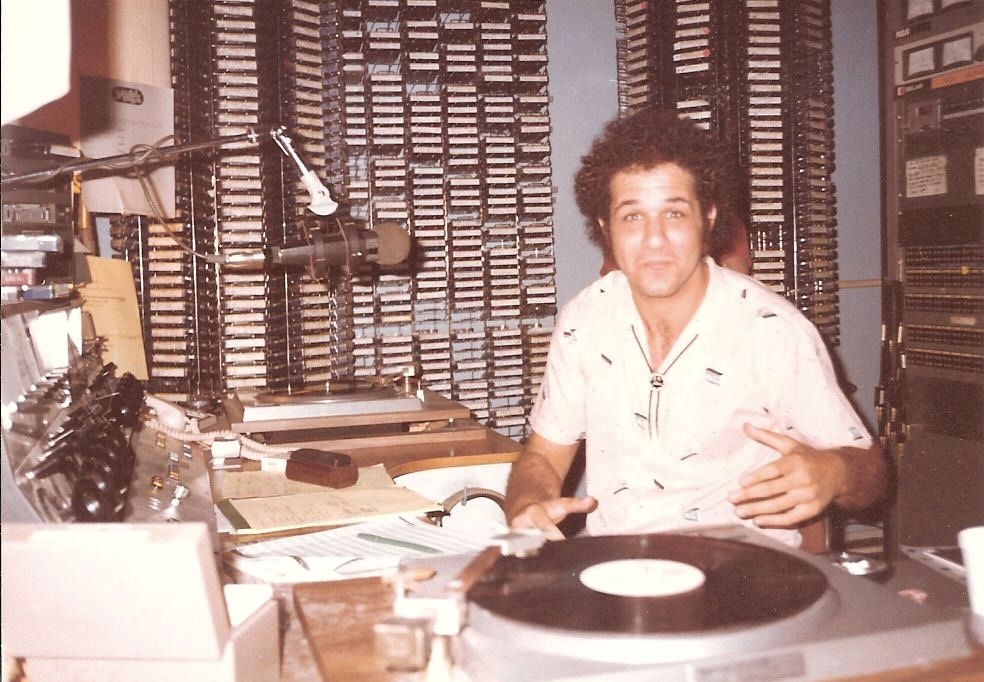
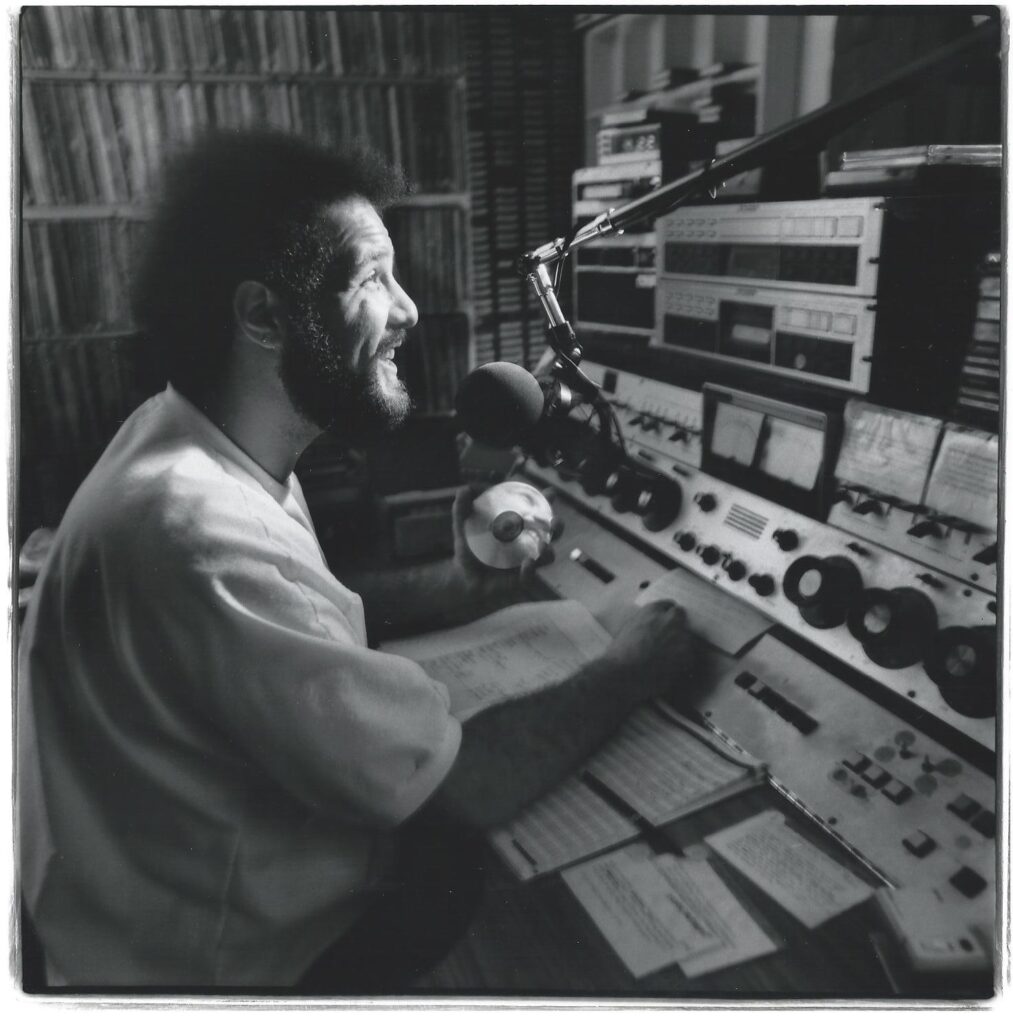
Despite his inexperience, Jody proved to be a quick study.
“I was not a radio guy,” Jody confesses. “I came up under a lot of knowledgeable people. One of my mentors was a fellow DJ named Ed Mayberry. He taught me a lot. And the music director and program director above me, Jeff Carrol and Clark Ryan, I just watched them. Eight years into it, the music director quit and I applied for the job. They were hesitant to give it to me because of my lefty music leanings, but they did allow me in there, and I proved that I could play baseball, I could do what those guys were doing. I still had that oasis of a specialty show where I could play Television and Eno, the things that I thought were cool that they weren’t playing. I just absorbed it.”
Jody gained a following and won his first Best DJ Austin Music Award. Years went by. Nine of them.
For music aficionados in Austin, there remained two choices on the airwaves: the eclectic long-running part-time music programming on KUT, and on the commercial end, ‘Critic’s Choice’.
Then, in 1990, out of the blue, a phone call.
“The guy who owned this station, KGSR (then known as ‘Star 107’), called me and said, ‘Hey, I know my program director offered you a job as a morning guy and you turned it down, but I just want to say, we would be happy to have you over here in some capacity.’ They were a new age jazz station, right? And I said, ‘I don’t know what you’re talking about. Nobody called me.’ It turned out the program director was intimidated to call me because he was afraid I would take his job or something.”
“So I said, “I don’t do mornings. I’m not a morning person. But, you know, I would take a program director’s job. If you would give me a two year contract and give me creative freedom for the first two years, and then if it doesn’t work out, we’ll split.”
“I was just thinking, they’re going to double my salary from like 20K to 40K. I could save up enough money to get a down payment on a house in Austin (this was 1990). So if these two years don’t work out, then I’ll just let it go and buy a house and have something.”
Money might have been an incentive, but by asking for creative freedom, it was clear Jody had some ideas in mind. He’d been watching the success of ‘adult alternative’ (soon to be renamed ‘AAA’) stations, a format that was a happy middle ground between the freewheeling, wide-open days of FM’s infancy and the day’s tight-fisted formats. Stations like Chicago’s WXRT and Boulder’s KBCO were succeeding with much wider playlists. And he knew all about Dennis Constantine, who started KBCO, and was already working as a consultant at the struggling Star 107.
“I did have a vision, which sounds pretentious. There were all these artists like Chris Isaak, Lyle Lovett, Paul Simon, k.d. lang, that I was seeing selling out concerts, selling a bunch of records. I wanted to do a station like that, that also incorporated the Austin music that would fall within that. And, that was the idea I presented with Dennis Constantine.”
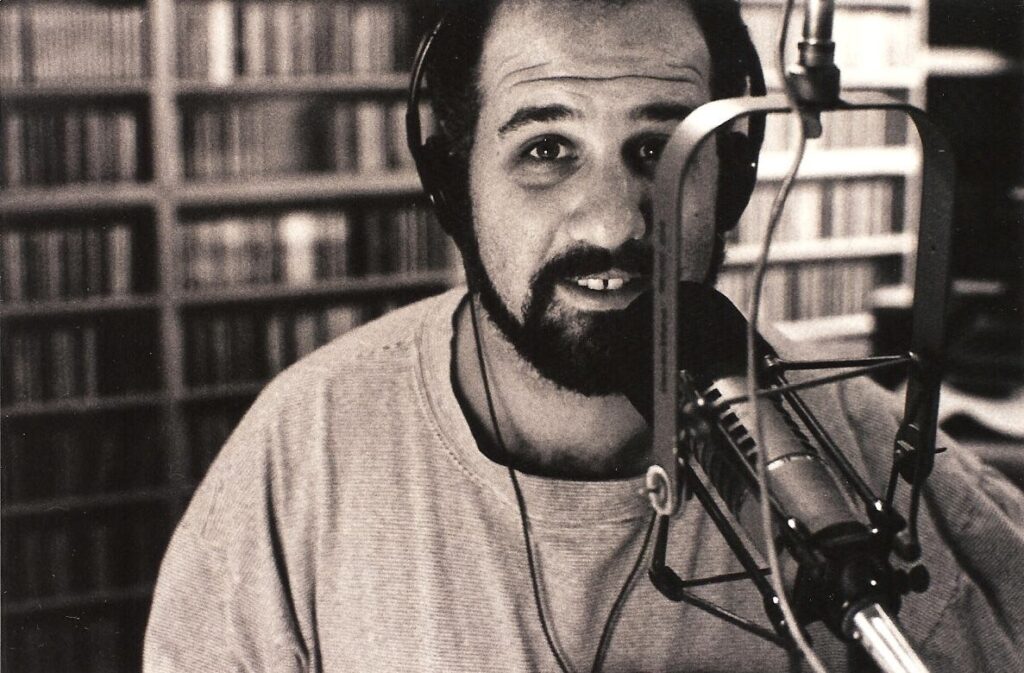
“Dennis would hire himself out to radio stations that wanted to emulate his success in Boulder, Colorado,” Jody explains. “But he wanted to do it in a regional fashion. He didn’t want to clone KBCO and bring it to Austin. ‘You’ve got this guy Darden Smith, who just signed to Columbia Records,’ he would say. ‘You should be playing him. ‘You’ve got this band Poi Dog Pondering. Y’all should be playing these artists.’”
As Star 107 began to morph into KGSR, there was palpable excitement when audiences began to hear artists they had not previously heard on commercial radio. Though its fortunes would ebb and flow over the years, as ratings, audiences and tastes changed, from the outset KGSR was a success. Jody is quick to emphasize that it was a team effort.
“We took Dennis’ guidance. He was a great mentor to myself and to the music director. Susan Castle (who came over to KUT prior to Jody, and is the KUTX midday host) was already at the station. She was doing the music director duties, she just didn’t have the title. When I got hired at the end of 1990, I asked her if she would continue doing what she was doing and take the title of music director. And thank God she did, because I still think she’s the unsung hero of Austin radio, with her knowledge of setting up programming clocks and things like that. I was never good at that stuff.”
“There were so many other people that helped and had knowledge, like our general manager, Scott Gillmore, who was another mentor. He was and still is a great guy to work with. So he wasn’t dictatorial and he wasn’t a weirdo, he just was a good manager. And then you had Kevin Connor, and Bryan Beck who was the midday guy at Star 107 when it was a country station in Bastrop in a house. So it wasn’t just me leading the charge.”
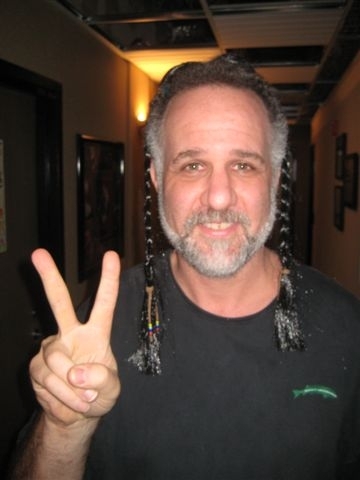
“Everyone contributed and everyone helped, and thankfully they all still talk to me because I could be a jerk in those early days. I had no personal management skills. I was 31 years old. I had Kevin Connor as a morning person. I didn’t understand how you dealt with morning personalities who are by nature really talented, but also can be difficult to work with. Just like the rest of us, they have an ego. I didn’t do a good job at personnel management for a long time.”
The KGSR Team would find remarkable success in the market, and Jody’s stature in the industry grew exponentially, particularly among artists and labels who had previously not found commercial radio very receptive.
And in the late nineties, Jody walked into another career.
“I started producing promotional interview discs for the labels,” Jody explains. “I’m [already] in the flow of the labels because I’m the program director of a radio station. I think the first one I did was for, at Yoko Ono’s request, the John Lennon Anthology box. I got a reputation for being the guy to do this. There were no podcasts. There were no things of that nature where national distribution of an interview would go down. And it was appealing to people like Joni Mitchell and Neil Young and Tom Waits and Paul McCartney that they could do just this one interview to promote the album, and it would be distributed everywhere.”
“It snowballed – I did Emmylou Harris and Lucinda Williams and John Hiatt discs. Ringo and R.E.M. Willie and Steely Dan and so many others. Several of the interviews are commercially available in box sets. One weekend in January 2000 at the same studio, I did one disc with Patti Smith, and then the next day with Warren Zevon. There’s 50 of them. It’s kind of crazy.”
Yeah. Among fellow music obsessives in the industry, it’s this sideline that makes us all the most envious. But nothing lasts forever. Promotional interview discs soon went the way of cd-rom’s, and over time, even the mighty KGSR hit on hard times.
“Commercial radio,” Jodys says with a sigh. “The beast, of course, is getting the ratings up so that you can charge the most money for the 60 second commercials. So if you’re not making budgets and your ratings aren’t great, then the sales staff can’t bump up their rates.”
Commercial radio was getting squeezed on all fronts. Consolidation had often led to overpayment of licenses. Innovations like voice tracking had slashed staffs to the bone. By 2008, Susan Castle and KGSR’s assistant PD, Big Jyl, were both gone.
“I was unhappy,” Jody admits. “And by the time 2009 came, I was just done. I quit.”
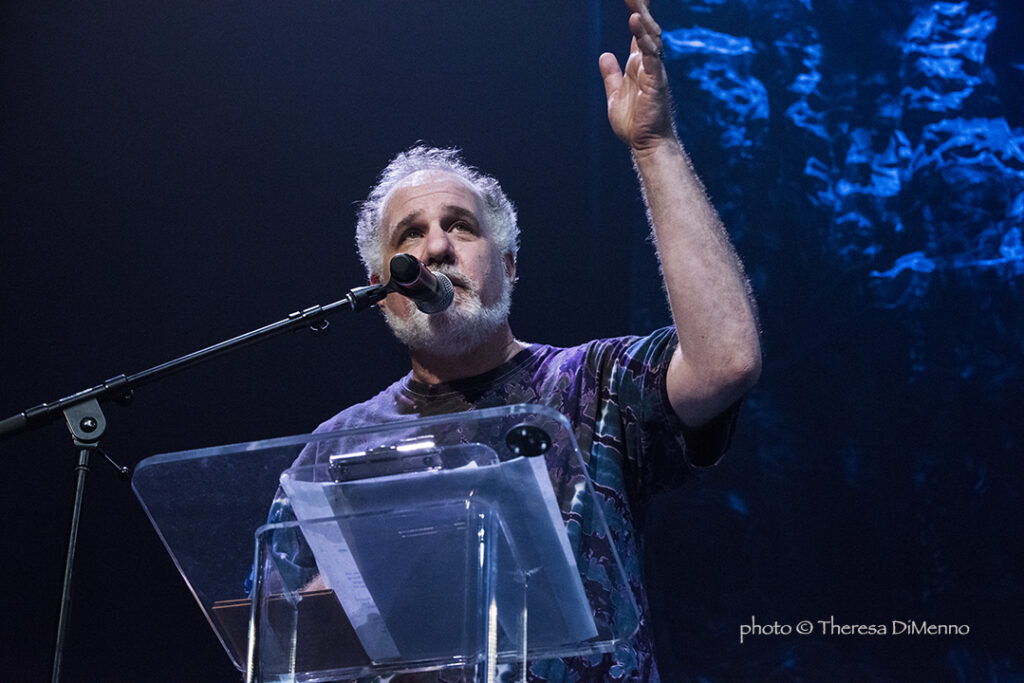
In order to get a severance package, Jody agreed to a one-year non-compete clause. When that was up, he came straight over to KUT. With music programming only taking up half the day, there were only fill-in shifts available, so Jody did those when they came available. Despite the lack of regular work, Jody found his new job liberating. He was no longer the boss, just a DJ (which his wife would remind him of on the rare occasions he would complain about something), and he loved the wide-open format. When KUTX became a reality a couple of years later, Jody found himself back on the radio full-time.
Once again, he quickly adapted to the very different world of non-commercial radio.
We all learned from him, too. The preparedness and professionalism he applies every time he is on air. the surprising openness he shows to all kinds of new music. The way he makes sure cross-promotions are kept up, the way he mentors younger air staff, the organizational clarity and passion he applies to every aspect of his job.
Most of all, it makes us proud every time he says it, which he does often:
“KUTX is the best job I’ve ever had. The place where every single person that’s in a role here excels in that role. And also, the ultimate manifestation of the eclectic dream of playing all kinds of music on the radio. Plus, we’ve got a badass building, you know, the Studio 1A, it’s just incredible. I’m not here to pump up anybody. This is just my truth about working here.”
For someone who has accomplished so much, he has little trouble coming up with standouts, because they are clearly so personal to him.
“The proudest thing I did was produce the KGSR Broadcasts CD series culled from on air performances, because they raised $2 million for The SIMS Foundation, which provides low cost mental health care to the Austin music community. SIMS was about to financially go under. And anyone who worked with SIMS, be it Peyton Wimmer, who was at Michael Corcoran’s memorial the other day, will tell you that those CDs saved that really important nonprofit organization.”
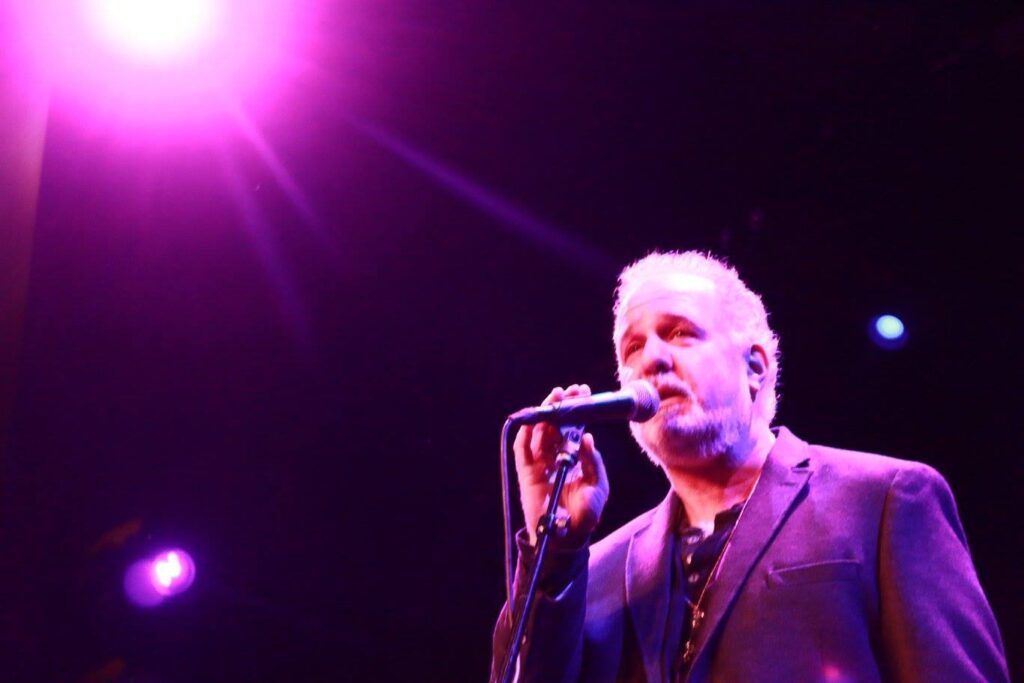
“And the thing that is the most fun is getting to know musicians. This is a little ego-y, but I got to play music live with a lot of people. I would become friends with the musicians and they would realize, hey, this guy’s pretty good. Ronnie Lane and Ian McLagan of the Small Faces, Billy Bragg, Alejandro, Doug Sahm, Pete Townshend, Loudon Wainwright, Todd Rundgren, Steve Forbert, Shelby Lynne, and many more. I’ve been on stage singing with all of them, playing with all of them. And that was really fun. The real thrill, though, was just being part of a great community of people that wanted to make great radio and made the Austin music community a better place.”
Jody made KUTX a better place, there’s no doubt about that. I’ll miss working alongside him day after day, but mostly I’ll miss those same animated music discussions we’ve been having since I first met him over forty years ago at Waterloo Records. We’ll just have to have them outside the office now.
Is he bittersweet about retiring? Maybe a little.
“My wife retired in March. I want to be with her. I’m going to be 65 the day I retire. I want to get some time in a cooler climate and not have to work. I’ve been on the air five to six times a week for 40 years. I just feel like it’s a good time to bow out at the top. KUTX won all these awards this year. Somehow I won the best DJ award this year – 37 years after I won it the first time – before anyone knew I was retiring. It was sort of like a gift from the heavens.”
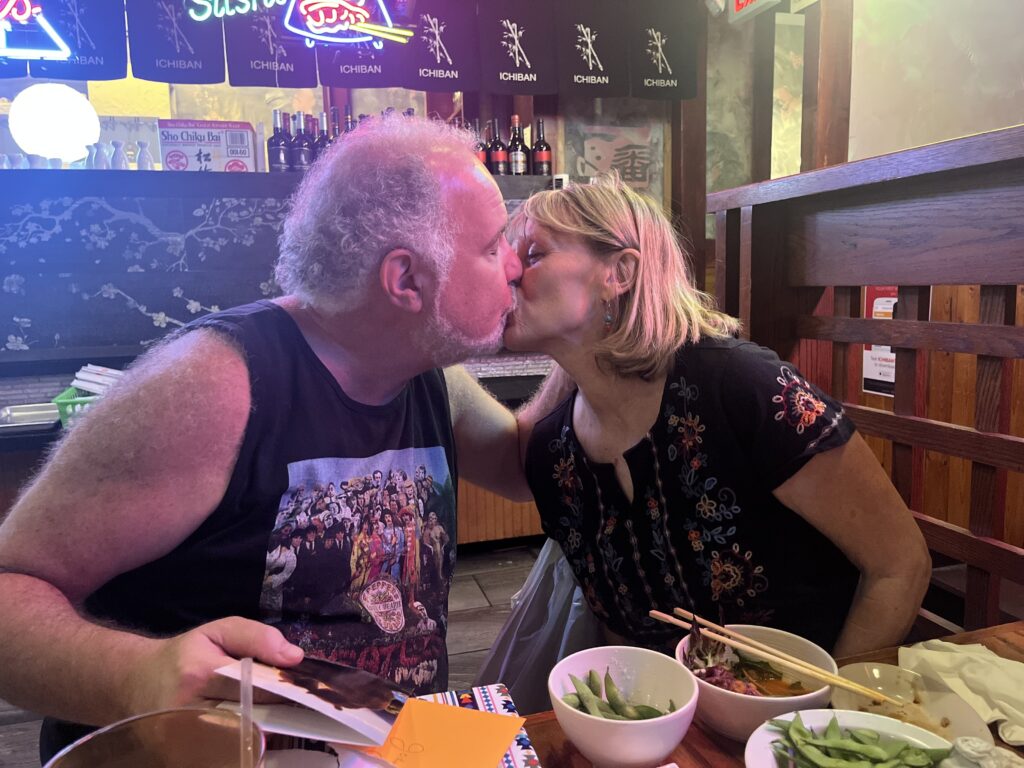
“My wife retired in March. I want to be with her. I’m going to be 65 the day I retire. I want to get some time in a cooler climate and not have to work. I’ve been on the air five to six times a week for 40 years. I just feel like it’s a good time to bow out at the top. KUTX won all these awards this year. Somehow I won the best DJ award this year – 37 years after I won it the first time – before anyone knew I was retiring. It was sort of like a gift from the heavens.”
Jody hopes to see more shows, work on some of his interview archives, and just generally enjoy himself. Whatever he does next, music will always play a part.
“This is my favorite job, and I’m retiring. No bitterness. Gratitude.”
Jody gets that bunched-up emotional look on his face I’ve seen so many times before.
“This Warren Zevon song, ‘Keep Me In Your Heart’, keeps coming up in my head,” he says.
‘There’s a train leaving nightly / Called ‘When All Is Said And Done’
That’s just how I feel. All is said and done for me. I’ve done my trip. It’s time to get on the train.”
| Tom Petty | Mary Jane’s Last Dance |
| Loudon Wainwright | The Swimming Song |
| Willie Nelson | Still Is Still Moving To Me |
| Bob Marley | Positive Vibrations (Live At The Roxy) |
| Sly & The Family Stone | Thank You (Falettinme Be Mice Elf Agin) |
| Patti Smith | Grateful |
| The Grateful Dead | Uncle John’s Band |
| Allen Toussaint | We Are American/Yes We Can Can (KUT November 29th, 2012) |
| The Band | Chest Fever |
| Doug Sahm & The Tex Mex Trip | Groover’s Paradise |
| Los Lobos | Volver Volver |
| ATCQ | Can I Kick It? |
| Tom Waits | Big In Japan |
| Brian Wilson | Love And Mercy |
| The Faces | Glad And Sorry |
| Lyle Lovett And His Large Band | All Downhill |
| R.E.M. | Sitting Still |
| Eliza Gilkyson | Hard Times In Babylon |
| Richard & Linda Thompson | I Want To See The Bright Lights Tonight |
| Iron & Wine | All In Good Time (Live in Studio 1A) |
| Iron & Wine | Anyone’s Game (Live in Studio 1A) |
| Van Morrison | Wavelength |
| Jeff Buckley | Grace |
| Vaughan Brothers | Tick Tock |
| John & Yoko | Watching The Wheels |
| Neil Finn | Anytime |
| Dream Syndicate | Tell Me When It’s Over |
| Alejandro Escovedo | All The Young Dudes (Live From Austin, Texas) |
| Miles Davis | Miles Ahead (mono) |
| The Byrds | Renaissance Fair |
| Brian Eno | St. Elmo’s Fire |
| David Bowie | What In The World |
| The Who | Let’s See Action |
| Marvin Gaye | What’s Happening Brother |
| Mavis Staples | Freedom Highway (Live: Hope At The Hideout) |
| Bruce Cockburn | Pacing The Cage |
| Shawn Colvin | Ricochet In Time |
| Neil Young | Tonight’s The Night |
| Jeff Beck | ‘Cause We’ve Ended As Lovers |
| Leonard Cohen | Take This Waltz |
| Rolling Stones | Shine A Light |
| Bob Dylan | You’re Gonna Make Me Lonesome (Take 1, Remake) |
| Robyn Hitchcock | I Saw Nick Drake |
| Genesis | The Lamb Lies Down On Broadway |
| Warren Zevon | Keep My In Your Heart |
| Patty Griffin | Rider Of Days |
| Frank Zappa | Muffin Man |
| George Harrison | What Is Life |
| The Beatles | Goodbye |
